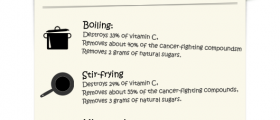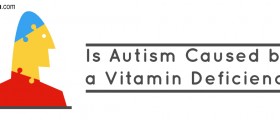
Vitamin B complex refers to a group of eight vitamins: B1, B2, B3, B5, B6, B7, B9 and B12. Like any other vitamin, vitamin B complex is vital for our well being. Deficiency of any member of the B-complex can lead to different disorders and cause various symptoms.
Vitamin B1 (Thiamine) Deficiency
Thiamine is required by the body for growth and the health of the nervous system. It also plays a role in carbohydrate metabolism and blood formation. Thiamine is found in eggs, leafy green vegetables, nuts, legumes, berries, dried beans, whole grains, pork, liver and enriched cereals. People whose diet mainly consists of carbohydrates may exhibit symptoms of vitamin B1 deficiency. In the U.S., this deficiency is mostly seen among alcoholics due to their poor nutrition. Shortage of vitamin B1 can lead to extreme fatigue, irritability, constipation, forgetfulness, edema, insomnia, leg cramps, muscular weakness, heart swelling and enlarged liver. Severe deficiency of thiamine can result in beriberi, a disease characterized by neurological symptoms.
Vitamin B2 (Riboflavin) Deficiency
Riboflavin plays a role in energy production and it is needed to process fats and amino acids. Furthermore, it activates vitamin B6 and vitamin B9. Sources of riboflavin are whole grains, leafy green vegetables, mushrooms, milk, meat, liver, bread, pasta and enriched cereals. A shortage of vitamin B2 can cause skin lesions, inflammation of the mouth and tongue, cracks and sores in the corners of the mouth, sensitivity to light, dizziness, insomnia and hair loss.
Vitamin B3 (Niacin) DeficiencyNiacin is required for healthy skin, proper circulation, healthy functioning of the nervous system and metabolism of carbohydrates, proteins and fats. Foods rich in niacin are poultry, fish, meat, whole grains, nuts, dried beans and enriched cereals. Symptoms of niacin deficiency include: depression, dizziness, headaches, diarrhea, insomnia, indigestion and muscle weakness. Severe deficiency of vitamin B3 can cause pellagra, a condition featured by dementia, dermatitis and diarrhea.
Vitamin B5 (Panthotenic Acid) Deficiency
Panthotenic acid is important for metabolism of carbohydrates, fats and proteins, the health of the skin, muscles and nerves as well as adrenal gland support. Sources of vitamin B5 are legumes, whole grains, eggs and meat. Deficiency of panthotenic acid can result in constipation, nausea, fatigue, allergies, abdominal pain, depression and sleep disturbances.
Vitamin B6 (Pyridoxine) DeficiencyPyridoxine is required by the body growth of the cells, metabolism of fats, proteins and carbohydrates and formation of the red blood cells. It is also important for energy production. Vitamin B6 can be found in whole grains, green beans, bananas, liver and bread. Shortage of vitamin B6 can cause symptoms such as: irritability, insomnia, nervousness, fatigue, headaches and eczema.
Vitamin B7 (Biotin) DeficiencyBiotin assists in release of energy from carbohydrates and helps form fatty acids. Sources of vitamin B7 are mushrooms, whole grains, green vegetables, egg yolk, liver and yeats. Deficiency of biotin is rare but if occurs it can cause depression, drowsiness, fatigue, hair loss and skin rash.
Vitamin B9 (Folic Acid) DeficiencyFolic acid helps in formation of hemoglobin, regulates blood pressure and is important for mental health. This vitamin is vital for development of nervous system of fetus. Folic acid can be found in leafy green vegetables, whole grains, beans, liver and oranges. Insufficient intake of this vitamin can cause miscarriage, stillbirth, birth defects, fatigue, anemia, acne, sore tongue, depression, infertility and cancer.
Vitamin B12 (Cobalmin) DeficiencyCobalamin is needed for production of red blood cells and healthy functioning of the nervous system. Sources of vitamin b12 are eggs, cheese, fish and liver. Shortage of this vitamin can result in anemia, fatigue, depression, weakness and sore tongue.

















Your thoughts on this
Loading...